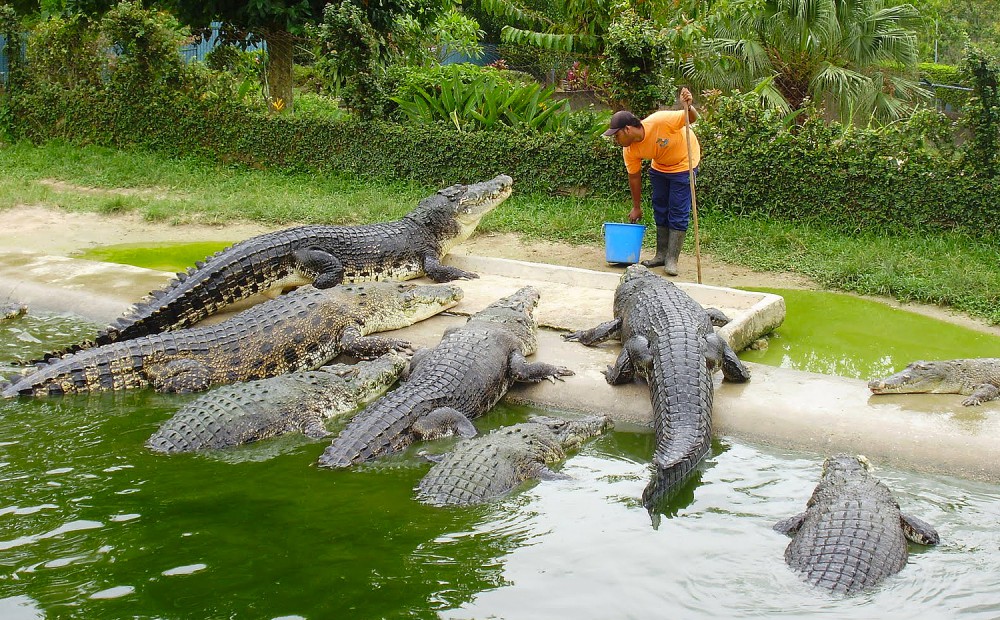Operating a crocodile farm has good financial potential, but requires a great deal of confidence and patience before you make a profit selling the skins (hides) or meat in the market. Generally, the Eastern and Southern parts of Kenya provide the best conditions for crocodile farming, although croc farms have been successfully established in areas of Kirinyaga and Embu. Here is what you need to do to venture into this wild business idea.
Step One: Get Training Or Find A Trained Personnel
Crocodiles are wild animals and they require special handling in order to survive in captive cross-circuit breeding conditions. As an investor eyeing this business idea, it is advisable to familiarize with the intricacies of running a crocodile farm on a day-to-day basis.
For instance, you can opt to work as a volunteer in one of the major farms around the country. Alternatively, if you’re busy or outside the country, you can always consider the option of hiring a farm manager who is well trained on handling the reptiles.
Step Two: Pick a Site For Your Farm
The best place to locate your farm is an area where the terrain is generally flat and the temperature is generally high. The main advantage of this kind of land is that besides it being ideal for the reptiles, it is generally cheaper to buy or lease. An acre of land is enough to accommodate a small farm of up to 700 crocodiles.
Step Three: Get KWS License
According to the Wildlife (Conservation and Management) Act of the Laws of Kenya, every person planning to keep crocodiles or any other wild animals should apply for a farming permit. This application is made to the Director KWS through the nearest KWS regional office. The annually renewable license fee is priced at Ksh2000.
Step Four: Acquire Crocodile Eggs for Your Farm
Crocodile eggs are freely available in the wild particularly in the areas surrounding the Tana Delta. As an upcoming farmer, you can make a trip to that area and engage the youth in collecting the eggs (of course you will need the KWS license for this).
On average you will pay Ksh20 per egg collected. Alternatively, you can acquire young hatchlings from existing farms like the Mamba Village in Mombasa County.
Step Five: Expand The Farm
Since mature female crocodiles are capable of laying up to 70 eggs per season you should strive to gather as many eggs as possible so that you can grow your farm to its maximum capacity. Most importantly the animals should be provided with adequate food (examples: remains from slaughterhouse, dead chicken, maize germ mixed with blood and dead crocodile meat).
How Much To Invest
The basic minimum budget for starting a small farm is Ksh150,000. However, this cost may increase depending on the number of crocodiles, size of land, land ownership, cost of feeds and cost of hiring farm caretakers.
- Constructing the farm structures – Ksh50,000
- Sinking 50×100 water ponds – Ksh40,000
- Acquiring Eggs and transport – Ksh20,000
- Cost of Running the Farm – Ksh40,000
How Much To Expect
A mature crocodile can produce up to 120 centimetres of quality belly skin which goes for $500 (Ksh50,000) on the international market. Apart from the skin, one can sell the meat of which 1 Kilogram of meat fetches a farm-gate price of Ksh350 on average (A mature crocodile can produce 200 Kilograms of meat).
The crocodile’s skull, teeth and skeleton can be sold to curio makers. In addition, one can turn the farm into a sanctuary and charge a gate fee to those visiting. Going by that rule, a small farm can rake in Ksh15,000,000 to Ksh30,000,000 per year.
Final Word
Crocodile farming in Kenya ranks top among the business ventures with the highest possible returns. However, the business requires a great deal of patience in order to reap all these benefits. If you would like to get more information about this opportunity comment on the box below or via Facebook.



















